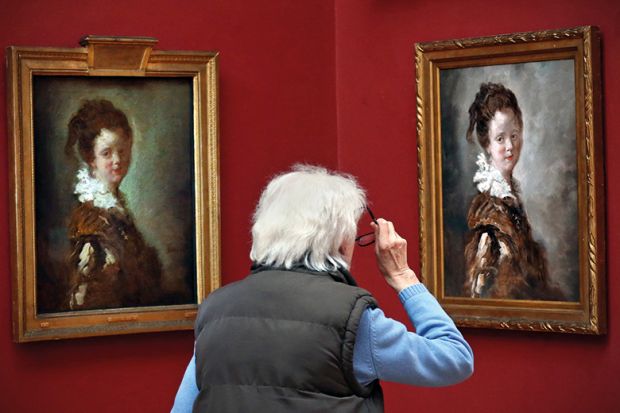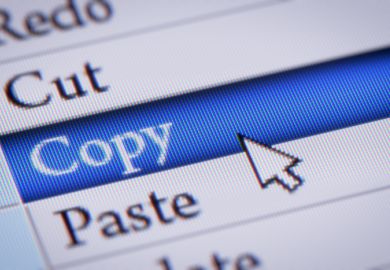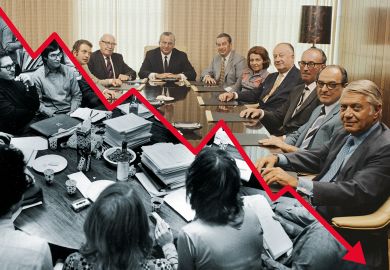Two recent cases at the University of Cambridge suggest that plagiarism may be treated less seriously in universities than one might expect, given all the effort put into warning students against it.
In one case, a professor was found to have incorporated material from a student’s essays into a published article without acknowledgement. According to a news report in the Financial Times in June, the university concluded that the plagiarism was unintentional and that the professor should therefore remain in post.
In a more recent case, an article by a member of staff was found to involve plagiarism, but the response of the university was merely to encourage them to withdraw and revise it (although, at the time of writing, several weeks later, the article remains in its original form). Justification for this decision was the academic’s statement that they had been subject to direct and indirect discrimination during the time the article was being written, when they were an early career researcher living away from home and dealing with significant health issues.
Discrimination is unacceptable and can certainly affect academic performance. However, it is not clear why this, or challenging living conditions, would lead to, or excuse, plagiarism. Indeed, accepting this excuse is surely unfair on other early career researchers who have suffered discrimination and/or been faced with serious difficulties, but who have not broken the academic rules.
Whereas in the first case there was a two-year investigation, deliberation in the second took about a month and seems to have occurred entirely within the faculty concerned; the university’s research integrity office declared the issue to be outside its remit because the person concerned was not a member of staff at Cambridge when the offence took place. If this is a correct reading of the UK Research Integrity Office guidelines, there would seem to be a loophole that needs to be closed: universities are unlikely to pursue ex-employees over plagiarism.
These cases prompt important questions about how serious an offence plagiarism is taken to be, as well as about what should be accepted as legitimate excuses for it. There is also the issue of the penalty. Cambridge’s statement on academic misconduct, with plagiarism listed under this heading, proposes that it is grounds for dismissal. Clearly, though, in some cases at least, this is not what actually happens.
There are, of course, already calls to rethink the issue of plagiarism in the face of the increased use of AI by students and perhaps also by staff. But it is important to reiterate why plagiarism is to be treated as a serious offence.
One reason is that it amounts to theft of someone else’s work. This perhaps also applies to what we might call near-plagiarism, where others’ words are paraphrased (on a substantial scale) rather than simply being employed without change, as also occurred in the second case mentioned above. In an environment in which academics compete for posts and promotion, this is obviously unfair.
The other reason plagiarism is an offence is that it corrupts the research literature. There are already more relevant articles in many fields than most busy academics can read. Swelling the literature still further with recycled versions of already published work only exacerbates the problem.
Furthermore, plagiarised articles may suggest that there is more evidence in support of a particular finding than there actually is: what appears to be a new study supporting a conclusion is actually just a spuriously reworked version of an existing one. Equally important, if it becomes commonly recognised, plagiarism spreads distrust of the published literature: can we believe what any author says, or even the evidence supplied?
So what should be the response of universities to the discovery of plagiarism? It may well be justifiable to offer students support to help them avoid any repetition of the offence, since it is possible that some do not understand why it is wrong. But can this assumption of ignorance be extended to academic staff? It is hard to believe that they would not recognise the ethical lapse involved in copying someone else’s work, or would be unaware of plagiarism policies relating to students – and fail to see the implications for their own work.
A common defence on the part of those whose writing has been shown to involve plagiarism is that it was inadvertent. However, it is hard to understand how an academic would make this mistake. Furthermore, doing so would amount to negligence, which must surely warrant some action. But perhaps a specified range of warnings and penalties is necessary, short of dismissal. For instance, should those who commit this offence at least be publicly named and shamed?
Given the highly competitive environment in which academics operate today, as well as the huge pressures on their time, this problem is likely to get worse. The question is how we balance concern for the individual with the need to deter academic misconduct of this kind, given its unfairness and damaging consequences.
For legal reasons, the author remains anonymous.
Register to continue
Why register?
- Registration is free and only takes a moment
- Once registered, you can read 3 articles a month
- Sign up for our newsletter
Subscribe
Or subscribe for unlimited access to:
- Unlimited access to news, views, insights & reviews
- Digital editions
- Digital access to THE’s university and college rankings analysis
Already registered or a current subscriber? Login








